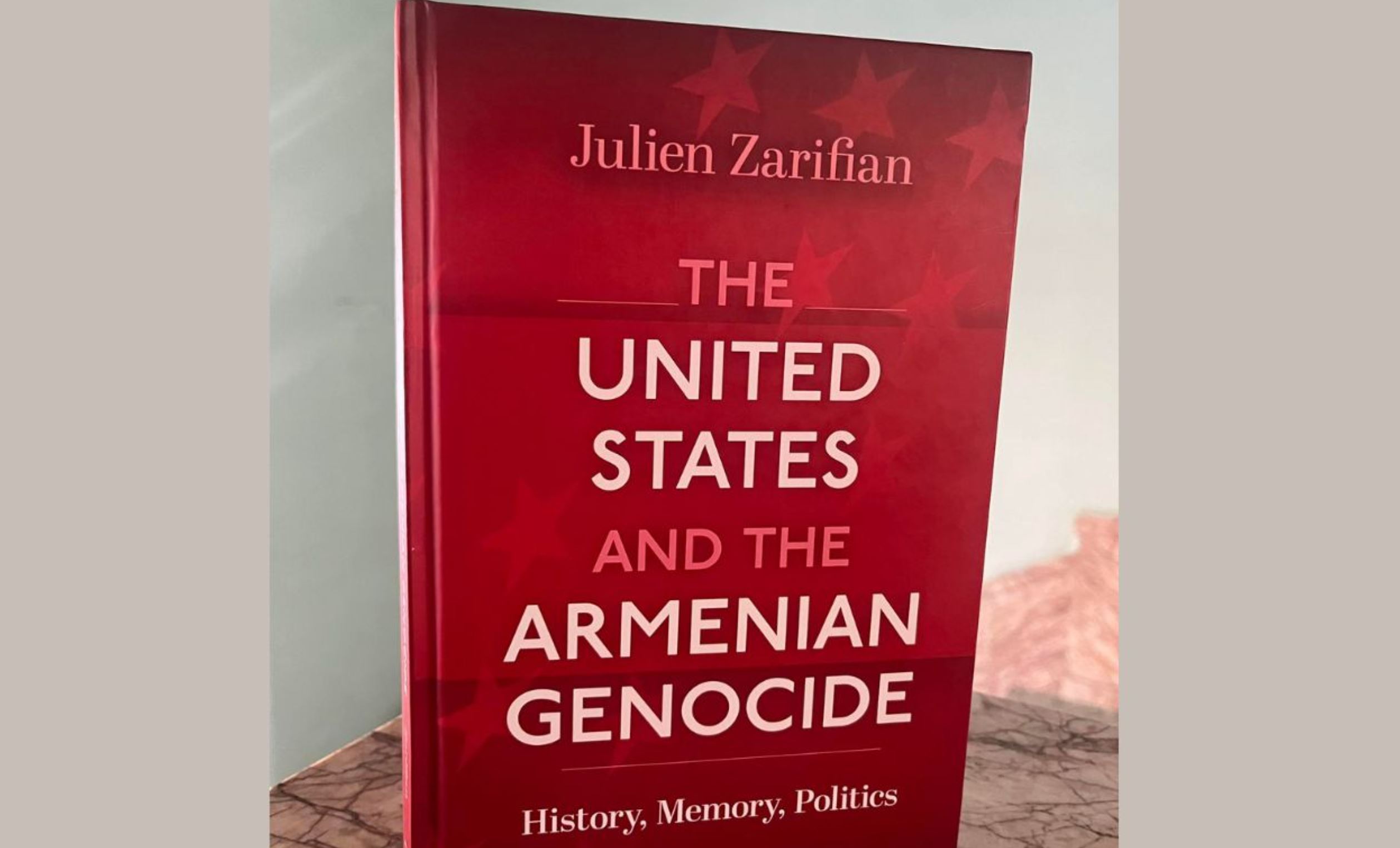New Publication: The United States and the Armenian Genocide: History, Memory, Politics
- (0)

During the first World War, over a million Armenians were killed as Ottoman Turks embarked on a bloody campaign of ethnic cleansing. Scholars have long described these massacres as genocide, one of Hitler’s prime inspirations for the Holocaust, yet the United States did not officially recognize the Armenian Genocide until 2021.
This is the first book to examine how and why the United States refused to acknowledge the Armenian Genocide until the early 2020s. Although the American government expressed sympathy towards the plight of the Armenians in the 1910s and 1920s, historian Julien Zarifian explores how, from the 1960s, a set of geopolitical and institutional factors soon led the United States to adopt a policy of genocide non-recognition which it would cling to for over fifty years, through Republican and Democratic administrations alike. He describes the forces on each side of this issue: activists from the US Armenian diaspora and their allies, challenging Cold War statesmen worried about alienating NATO ally Turkey and dealing with a widespread American reluctance to directly confront the horrors of the past. Drawing from congressional records, rare newspapers, and interviews with lobbyists and decision-makers, he reveals how genocide recognition became such a complex, politically sensitive issue.
Review
“The seminal text on the US relationship with the Armenian Genocide. Through a meticulous historical analysis of events and primary and secondary resources, combined with semistructured interviews with decision makers and lobbyists, Zarifian walks readers through more than a century of history, a history that ultimately culminated with formal recognition of the Armenian Genocide by the United States. . . . A must-read book for scholars and students interested in the Armenian Genocide, historical cases of genocide, genocide denial, the intersection of US foreign and domestic policies, and the role of civil society in pursuing change.” ― Peace & Change
“Zarifian’s book effectively explains why the past and present treatment of the issue by politicians, political interest groups, and citizens remains an important strand of US foreign policy in a time when genocide remains a very real threat.” ― Diplomatic History
“Julien Zarifian’s study sheds light on much more than the question of the Armenian Genocide: it sheds light on an American political class and a federal administration that have long been susceptible to outside pressure from pro-Turkish lobbies, revealing a political culture that is relatively untouched by ethical questions. The author’s methodical dismantling of this process is an essential tool for understanding the inner workings of the American state.” — Raymond H. Kévorkian ― author of The Armenian Genocide: A Complete History
“Julien Zarifian has produced a masterful account of the domestic and international “politicking” that led to the decades-long delay in America’s recognizing as genocide the mass killings of Armenians by the Ottoman Empire, perpetrated during the era of the First World War. His skillful assessment of the cross-cutting pressures that were brought to bear upon Washington decisionmakers from both foreign and domestic sources establishes The United States and the Armenian Genocide as the definitive work on the topic.” — David G. Haglund ― professor of Political Studies, Queen’s University (Canada)
About the Author
JULIEN ZARIFIAN is Professor in U.S. History and Civilization at the University of Poitiers, France, and fellow at the Institut Universitaire de France. He is the author of two books in French and has published dozens of academic articles in journals such as Society and European Journal of American Studies.


















